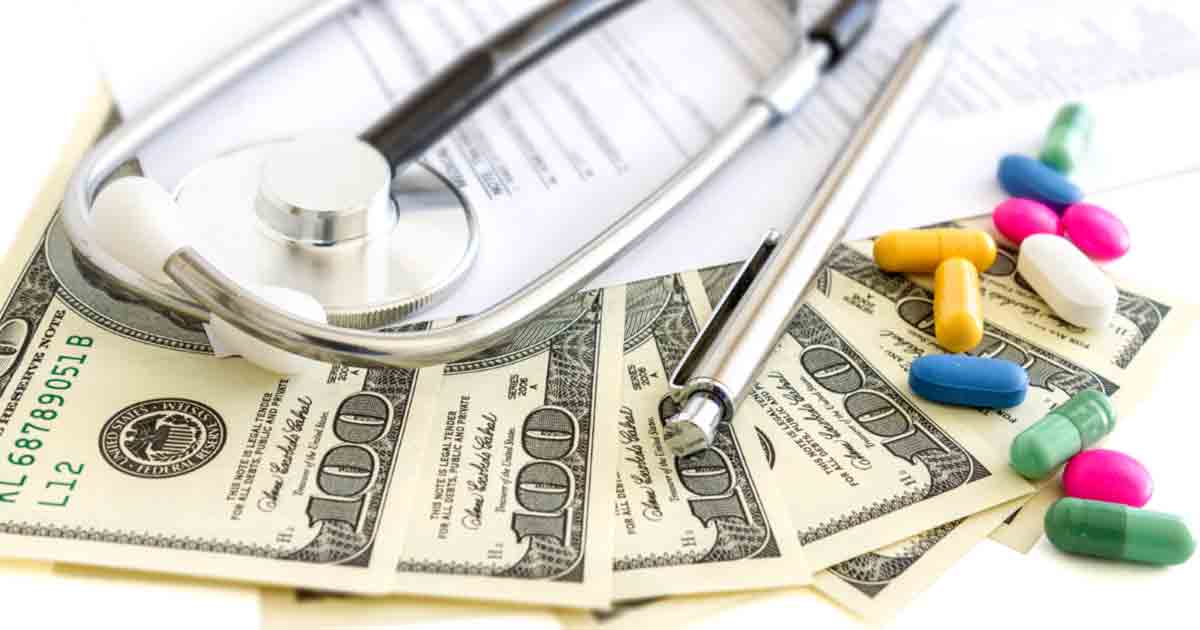 By B.N. Frank
By B.N. Frank
The “Opioid Crisis” isn’t the only scandal perpetrated by Big Pharma, the Food and Drug Administration (FDA), and unethical doctors.
Thanks to Children’s Health Defense for alerting us to more Big Pharma corruption.
Big Pharma Paid Billions in Penalties for Illegal Practices, Study Shows
The peer-reviewed study found that 85% of the pharmaceutical firms surveyed paid penalties and most engaged in illegal activities for four or more years.
A Belk College of Business researcher is examining the price large pharmaceutical firms pay for their illegal practices. The study, authored by Denis Arnold, professor of management and Jule and Marguerite Surtman Distinguished Professor of Business Ethics in the Belk College, found that over the past 13 years, large pharmaceutical firms surveyed were penalized and paid over $33 billion in penalties.
Published Tuesday, Nov. 17, in The Journal of the American Medical Association the peer-reviewed study found that 85% of the firms surveyed had paid penalties and most engaged in illegal activities for four or more years.
The most common penalties were pricing violations, off-label marketing and kickbacks. Four firms had no penalties assessed during the period.
Arnold has authored or co-authored six papers on the pharmaceutical industry, including two papers that document the industry’s failure to adhere to their own self-regulatory guidelines regarding direct-to-consumer advertising.
Co-authors of the study are Oscar Jerome Stewart, Ph.D., San Francisco State University, and Tammy Beck, University of Nebraska-Lincoln (UNC). Stewart is an alumnus of UNC Charlotte’s interdisciplinary Organizational Science doctoral program, and Beck previously served as a faculty member in the Belk College.
Arnold offers this insight from the study:
As someone who studies and teaches business ethics, are there any takeaways from your research?
The fact that four firms in the study had no incidences of misconduct is an indication that it is possible to govern and lead large pharmaceutical firms without engaging in illegal activity. Also, the fact that when misconduct takes place, it does so over a period of many years, indicates that it is intentional and not accidental, again indicating poor governance and poor leadership.
As pharmaceutical firms gear up for mass vaccinations and treatments for COVID-19, based on this research, is there anything we should be looking out for?
Absolutely. Firms with high historical incidences of illegal activity are more likely to engage in the fraudulent representation of research data, the suppression of negative side-effects, and the false marketing of their products. It is very much related to COVID-19 research in that a firm with a history of misconduct would have a higher probability of lying about the efficacy of their vaccines or therapeutic treatments.
Are penalties just part of doing business?
It is only part of doing business if one believes that illegal activity is a legitimate business strategy. Otherwise, it is an indication of poor governance and leadership. Further, research I have done with Belk College colleagues Ted Amato (Economics) and Dean Jennifer Troyer (Economics) provides evidence that links illegal activity with reduced drug innovation. In other words, cheating is a substitute for innovation.
The billions of dollars in penalties — nearly $10 billion in the case of GlaxoSmithKlein — could instead have been spent on research and development.
What can government regulators learn from your research?
Aggressive oversight and enforcement are vital to ensure that pharmaceuticals are safely utilized and that pricing is consistent with federal regulations. In particular, to deter such behavior, it will be important to act on 2015 guidance from the Department of Justice, which requires that executives, and not just shareholders, be held liable for corporate misconduct. In addition, providing consistent and strong incentives for whistle-blowers is essential. Finally, there is ample room for additional regulation to better protect Americans from false or misleading information regarding drug efficacy and overpricing.
Since prescription drugs are critical to the health of citizens, should big pharmaceuticals be held to a higher standard?
All large pharmaceutical companies pledge to improve human welfare. Yet, the majority use marketing and pricing strategies that harm patient welfare to improve their bottom lines. Because of this hypocrisy, the pharmaceutical industry consistently ranks at the bottom among Gallup’s U.S. industry reputation rankings.
Published with permission from Inside UNC Charlotte.
The views and opinions expressed in this article are those of the authors and do not necessarily reflect the views of Children’s Health Defense.
Inside UNC Charlotte is produced and maintained by the Office of University Communications; campus communicators, who include individuals representing academic…
Sign up for free news and updates from Robert F. Kennedy, Jr. and the Children’s Health Defense. CHD is implementing many strategies, including legal, in an effort to defend the health of our children and obtain justice for those already injured. Your support is essential to CHD’s successful mission.
Subscribe to Activist Post for truth, peace, and freedom news. Send resources to the front lines of peace and freedom HERE! Follow us on SoMee, HIVE, Parler, Flote, Minds, MeWe and Twitter.
Provide, Protect and Profit from what’s coming! Get a free issue of Counter Markets today.